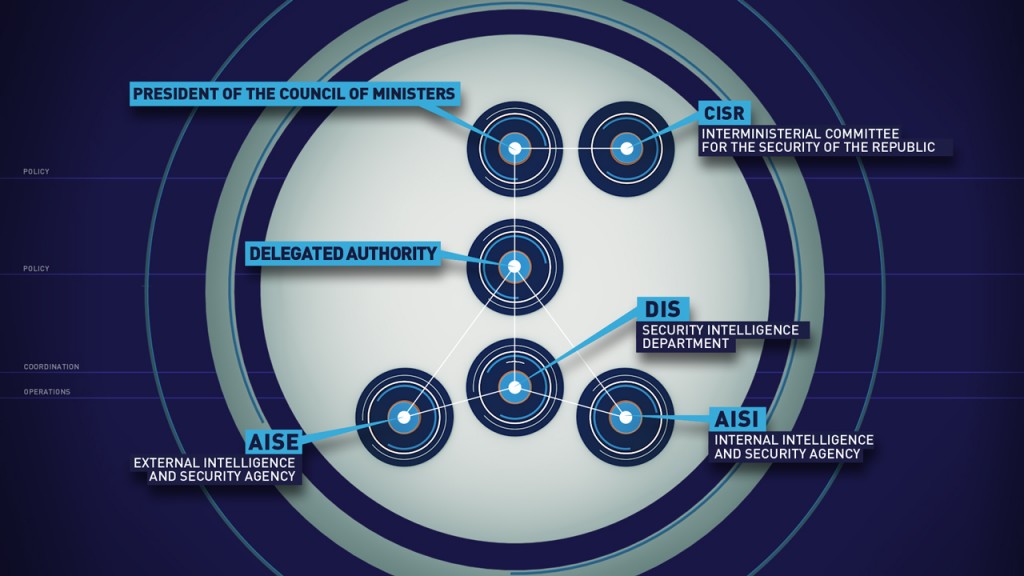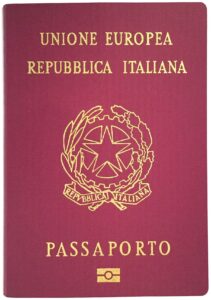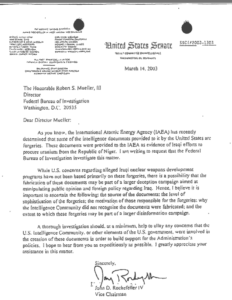AISE: Foreign Intelligence Agency: Italy
The Italian External Intelligence and Security Agency (Agenzia Informazioni e Sicurezza Esterna), known as AISE was formerly known as SISMI, is the foreign intelligence service of Italy. Operating outside Italy the organisation protects Italy’s regional interests mainly through the use of HUMINT (Human intelligence).
AISE can perform operations only outside the Italian national territory, as well as Italian embassies abroad. Specific laws expressly forbid AISE agents to operate within Italy, except if this is strictly necessary in overlapping operations. The Department of Security Information: DIS (Dipartimento delle Informazioni per la Sicurezza) is dedicated to inland security and AISE agents must liaise with DIS for such operations within Italy. The rules require that the operations in the country are only to be done in collaboration with the AISI and the Director General of DIS shall ensure the necessary forms of coordination. AISI meaning the Internal Intelligence and Security Agency (Agenzia informazioni e sicurezza interna).


- collects relevant intelligence,
- counters espionage and other hostile activities abroad,
- counters WMD proliferation (Weapons of Mass Destruction).
Concurrently AISE must collaborate with other overlapping liabilities such as:
- cyber espionage,
- subversion, criminal and terrorist activity aimed to be carried out within the Italy state.
Italy’s hay day as a world power is far gone, lost centuries ago, however they are uniquely geographically placed in the middle of the Mediterranean.
AISE was created in 2007 after the military intelligence service (Servizio per le Informazioni e la Sicurezza Militare (SISMI)) as this was implicated in two controversial cases related to the U.S.-led war on terror.
In 2002 SISMI agents handed over a series of forged documents to CIA agents leading them to believe that Iraq leader Saddam Hussein was secretly purchasing ‘yellowcake’ uranium in Africa, to be used in Iraq’s WMD nuclear weapons program. The US State Department insisted the documents were fraudulent, yet were cited by President George W. Bush in the 2003 State of the Union address. In March 2003, the International Atomic Energy Agency (IAEA) declared to the United Nations Security Council (UNSC), that the Niger uranium documents were a forgery and that they were under no impression that Iraq was building nuclear devices or adding nuclear warheads to their IBMs.

In October of 2001, the Italian journalist Elisabeta Burba who at the time worked for the magazine Panorama received a copy of the dossier from Rocco Martino (a former Italian Carabinieri policeman), which included the fabricated July ‘00 ‘agreement’ between Iraq and Niger for the purchase of 500 tons of yellowcake uranium. Antonio Nucera (a SISMI agent), had allegedly proposed a deal with. Martino accepted and was placed in contact with Laura Montini, (also from SISMI), working inside the Niger embassy in Rome, who began passing documents about the Niger sale of yellowcake uranium to Iraq.
One senior IAEA official stated, ‘These documents are so bad that I cannot imagine that they came from a serious intelligence agency. It depresses me, given the low quality of the documents, that it was not stopped. At the level it reached, I would have expected more checking’.
Congressman Henry A. Waxman, who approved Bush’s war initiative, expressed concern that such a mishap could have occurred. ‘It is hard to imagine how this situation could have developed,’ he wrote to the President. ‘The two most obvious explanations — knowing deception or unfathomable incompetence…’
In 2005 the SISMI chief Niccolo Pollari admitted that the source of the report was a former informant who had been kicked out of the service. These false documents were the pretext to the Gulf War and why it is mission critical that agents and departments verify and qualify the sources of information received.
